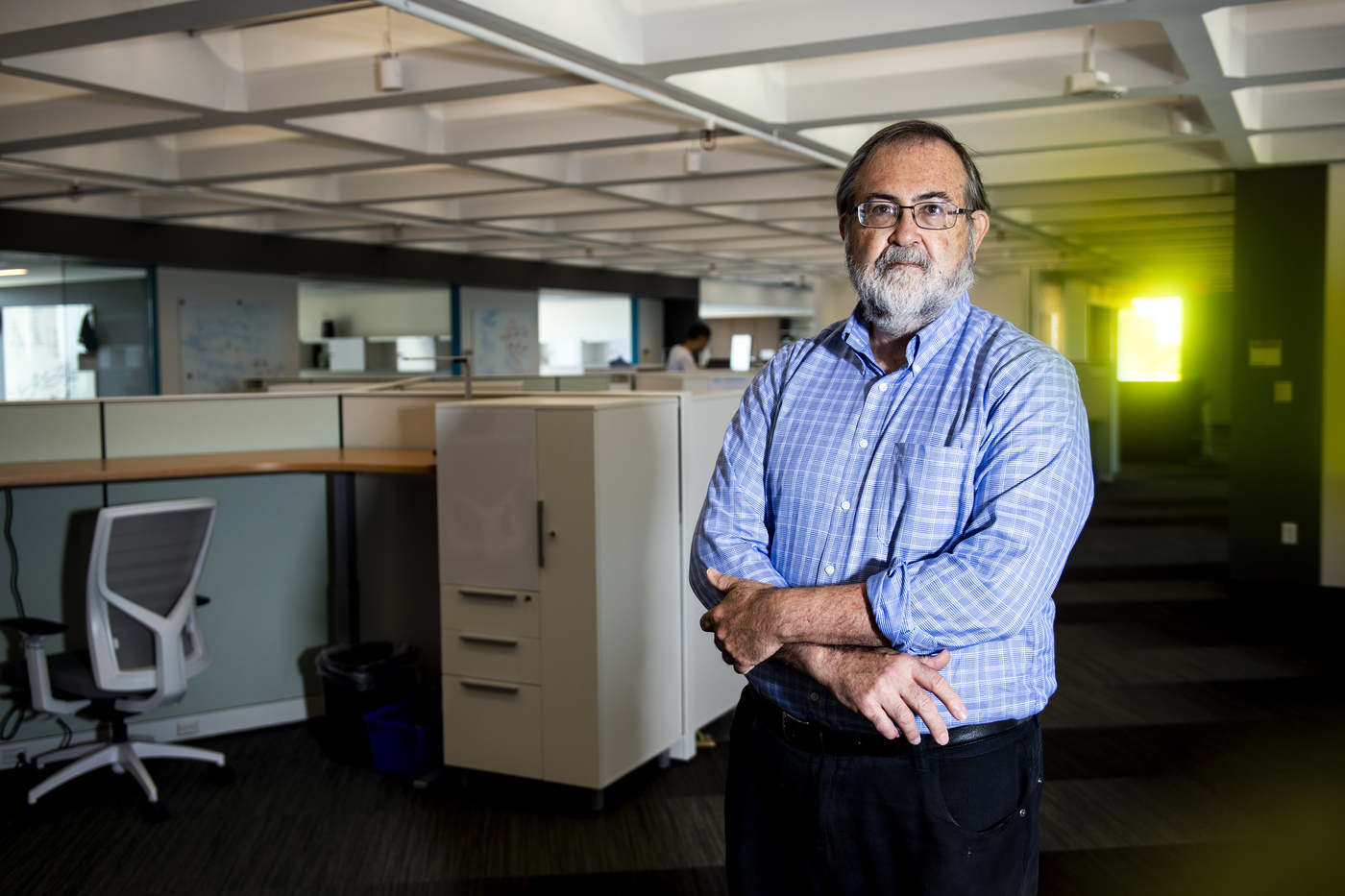The National Science Foundation (NSF) has announced a five-year grant to support a Physics Frontiers Center (PFC) headquartered at Rice University. This effort will include opening a satellite location this Fall at Northeastern under the direction of University Distinguished Professor of Physics and Bioengineering, Dr. Herbert Levine.
The Center for Theoretical Biological Physics (CTBP) was founded in 2002 at the University of California-San Diego and moved to Rice in 2011 when biophysicists Herbert Levine, José Onuchic and Peter Wolynes were recruited to join the faculty. Levine, a founding co-director of the Center, came to Northeastern in 2019 and facilitated the partnership to expand its reach to the Boston area. Baylor College of Medicine and the University of Houston round out this dynamic nationwide collaboration of scientists.
“The full integration of research across all of our locations has been critical to our success,” says Levine. “Formally expanding the program here at Northeastern, in the heart of the medical and scientific hub of Boston, brings even greater resources, talent and skills to our endeavors.
The research, focusing on the fundamental science needed to understand biological systems, will encompass a host of projects, including computational studies of the structure of the genome and how that structure couples to physiology through its effects on gene expression; dynamical systems of interacting molecules that enable biological systems to sense their surroundings and adjust their behavior accordingly; and the properties of non-equilibrium physical structures that make up biological cells (e.g. the mechanical properties of the cell’s cytoskeleton and its role in organizing cell structure and dynamics).
“In addition to the research, the Center creates an environment for broadly-focused training of graduate students and postdoctoral researchers, providing a framework for them to become leaders of the field in future years,” says Mark Williams, Chair of the Department of Physics at Northeastern. “This is a major accomplishment for our University.”
NSF’s Physics Frontiers Centers program supports the collective efforts of large group of researchers, enabling transformational advances in the most promising research areas. PFCs also include creative, substantive activities aimed at enhancing education, broadening participation of traditionally underrepresented groups, and outreach to the scientific community and general public.
“The Physics Frontiers Centers program enables major advances at the frontiers of physics,” said Jean Cottam Allen, NSF program officer who oversees the agency’s PFCs. “Researchers at the Center for Theoretical Biological Physics conduct innovative and forefront work at the intersection of physics and biology.”
One of only 10 such centers in the United States, the CTBP mission will continue to be devoted to the sophisticated analysis, computation, and quantitative experimentation needed for understanding the living world. The $12.9M grant will allow the center to continue to pursue its critical research, training and outreach efforts over the next 5 years. This is the third time the center has been awarded a renewal and makes them the longest running PFC in the nation.

